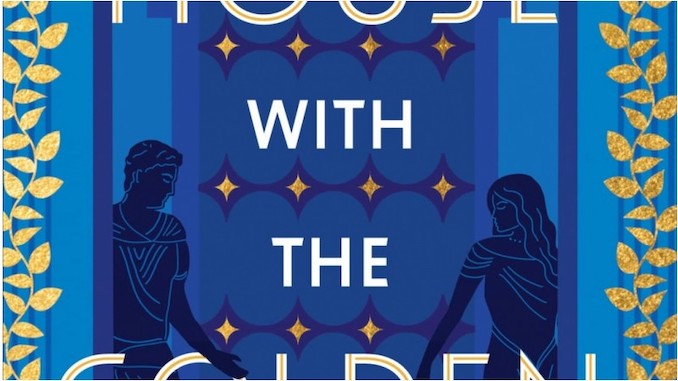The House with the Golden Door Is a Nuanced Expansion of The Wolf Den’s World

Elodie Harper’s The Wolf Den is one of the best pieces of historical fiction you’ll read this year, a brutally honest tale of survival and struggle centered around precisely the sort of voices that are so often left out the way we remember the past. And thanks to a rare bit of publishing kismet, its sequel The House with the Golden Door is hitting shelves just a few short months later, ready to once again dazzle us with its intricate, detailed recreation of life in ancient Pompeii.
And, for the record, it’s pretty darn successful. The rare sequel that’s as good as its predecessor but that doesn’t simply retread the emotional beats of the first book, instead pushing its story, its protagonist, and its audience’s emotions in uncomfortable and unexpected new directions. Emotionally complex and layered, The House with the Golden Door is unflinchingly honest in its storytelling and doesn’t require any of its characters to be perfect in order to deserve to have their voices heard. Because at the end of the day—these are people scrambling to survive in a world that has told them their lives don’t mean anything,
Amara may be able to win her freedom at the end of The Wolf Den but in many ways, she’s simply traded one kind of cage for another. Because although The House with the Golden Door may have (largely) left the brutal setting of the brothel behind, the world of the lupanar still looms large over its tale. Amara may no longer be enslaved and she may no longer technically work at The Wolf Den, but that doesn’t necessarily mean she is free, or that she’s not still forced to trade her body for the promise of safety and security.
Installed in her titular house with the golden door as Rufus’s new mistress, Amara is haunted by her past, obsessively wondering about what’s happening back at the Wolf Den and struggling to fully extricate herself from the influence of the man who used to own her. As she learns what being a concubine means, she finds herself stuck in a strange liminal space—too well off to be trusted by the lowborn servants and slaves in her new home but not well off enough to be truly safe in her own person or possessions, she finds herself deeply lonely and missing the camaraderie she used to have with her brothel sisters. (As bad as it was, at least they had each other; in her new house, Amara has no one.)
-

-

-

-

-

-

-

-

-

-

-

-

-

-

-

-

-

-

-

-

-

-

-

-

-

-

-

-

-

-

-

-

-

-

-

-

-

-

-

-








































